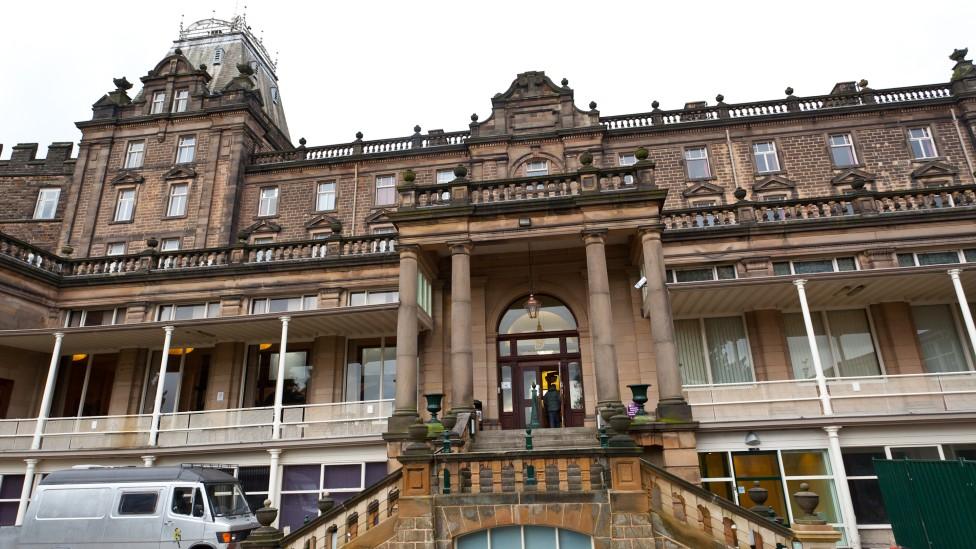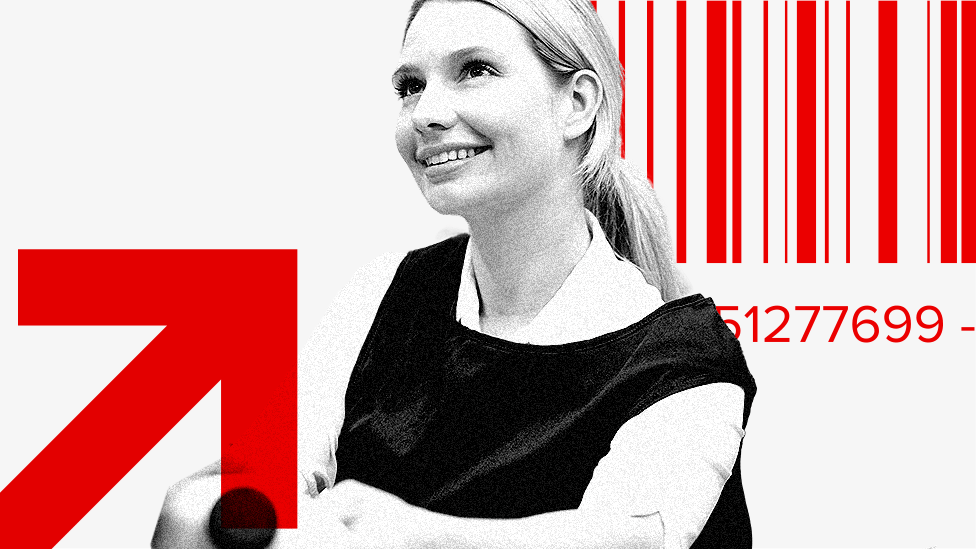Minimum wage rise adds £4.4m to Derbyshire council budget shortfall
- Published
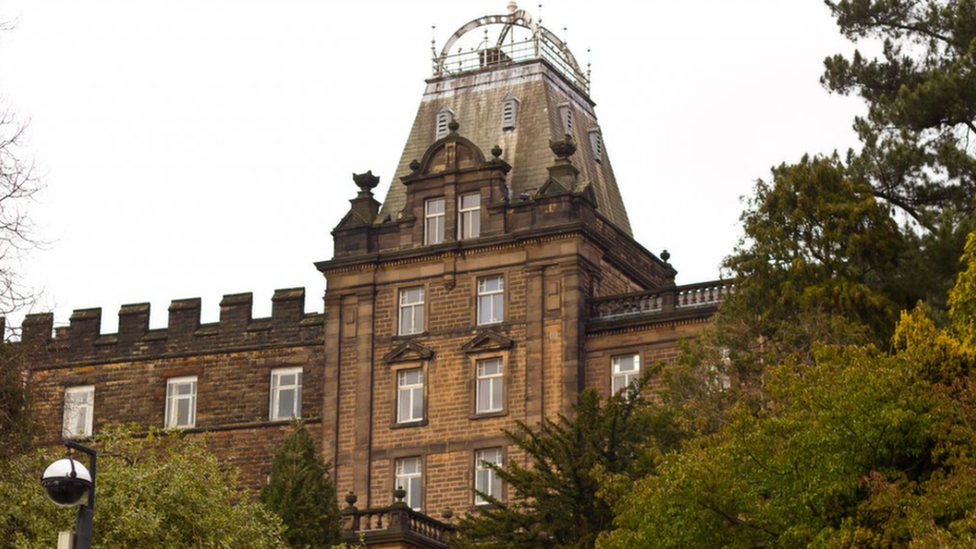
Derbyshire County Council is currently facing a £33m budget shortfall
The government's decision to increase the minimum wage has added £4.4m to a council's budget shortfall next year, its leader has said.
Tory-run Derbyshire County Council is already scrambling to fill a £33m black hole in the budget by the end of March.
Council leader Barry Lewis said Chancellor Jeremy Hunt had failed to recognise the financial pressures councils were under, which was, in effect, "bad manners".
The Treasury declined to comment.
Reacting to the budget on social media, external, Mr Lewis - who is also finance spokesperson for the County Councils Network - questioned whether Mr Hunt had forgotten about local government.
He said he would be going to Westminster to lobby for extra cash in the local government settlement next month.
"We deserve a recognition that there is a problem within this sector, widely," he told the BBC.
"We know that right across the system, people are extremely disappointed there wasn't some acknowledgement of the issues faced by local authorities - it was bad manners, in effect, not to recognise that.
"We know that it's not going to be easy to fix... but that recognition would have been helpful and maybe a hint of what might be coming in the settlement in December would have been useful."
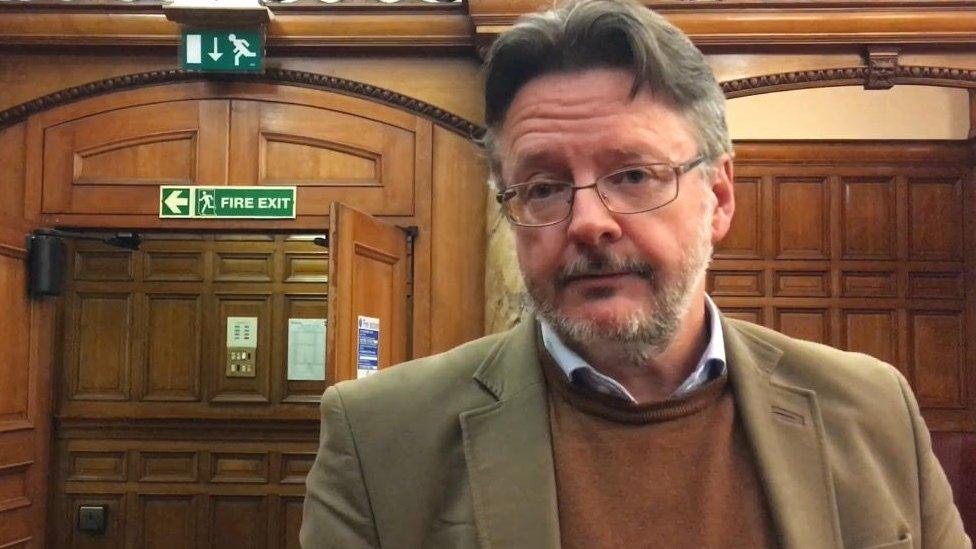
Barry Lewis said Jeremy Hunt had failed to recognise the pressures councils faced
Councils across the country - including nearby Nottingham City Council, which declared effective bankruptcy on Wednesday - are struggling, but Mr Lewis said he was "reasonably confident we'll come out pretty close to a balanced budget, hopefully, this year", although the new national living wage will add an additional burden from April.
Mr Lewis said: "Next year we're presented with another potential problem - on top of the £13.2m we already knew we were going to have to deal with for wage increases, there's another £4.4m on top of that... that's over 1% of council tax.
"That's a very, very significant issue that means next year we're going to find ourselves in a challenging position again, along with lots of other local authorities across the country."
The Treasury declined to comment, but a Department for Levelling Up, Housing and Communities spokesperson said: "Councils are ultimately responsible for their own finances, but we stand ready to speak to any council that has concerns about its ability to manage its finances, or faces pressures it has not planned for."
Mr Lewis acknowledged the county council's reserves were running very low, having left general reserves at £28m, very close to the legal minimum levels, in September.
The latest budget update shows another £10m has been used to shore up finances from reserves earmarked for budget management, leaving £4m in that pot, and with £197m left in earmarked reserves around inflation risk.
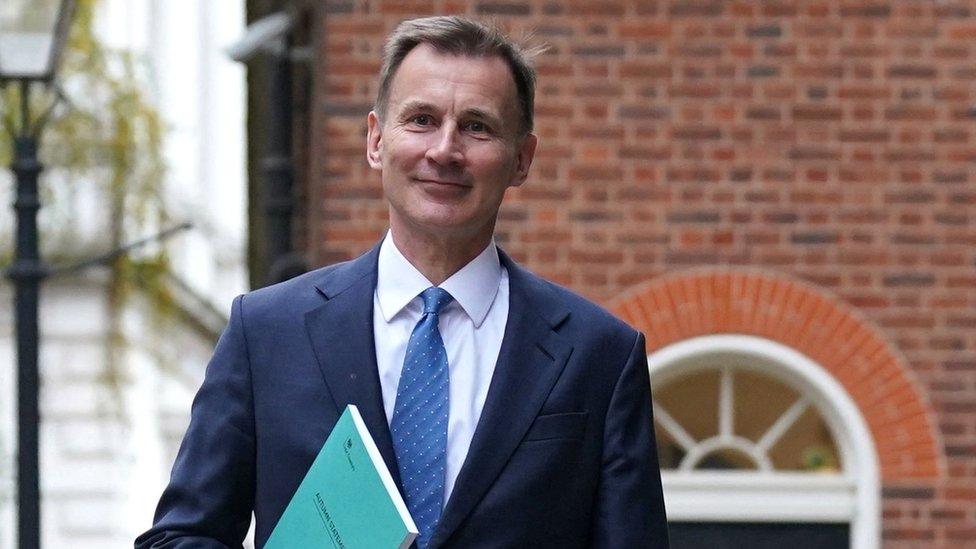
Mr Hunt announced the minimum wage was to increase by more than a pound to £11.44 per hour from April
The biggest spending concern is the cost of external child care providers, Mr Lewis said, and the council leader called for the government to impose a cap on "extortionate fees" from offshore companies making "huge profits".
Some of the care packages in Derbyshire are costing £12,000 a week, Mr Lewis said, and a bill for one child tops £1m a year.
A Department for Education spokesperson said they recognised "some of the concerns around profiteering".
They added: "We are working with Ofsted and the sector to develop plans for a financial and provider oversight regime to increase transparency for example on ownership, debt structures and profit making across both independent fostering agencies and residential children's homes."

Follow BBC East Midlands on Facebook, external, on X, external, or on Instagram, external. Send your story ideas to eastmidsnews@bbc.co.uk.
- Published27 November 2023
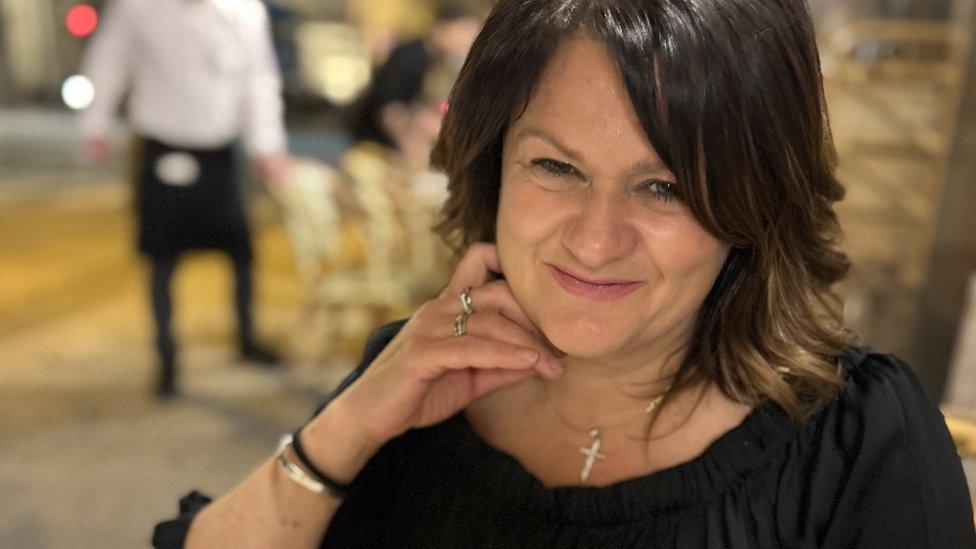
- Published23 November 2023
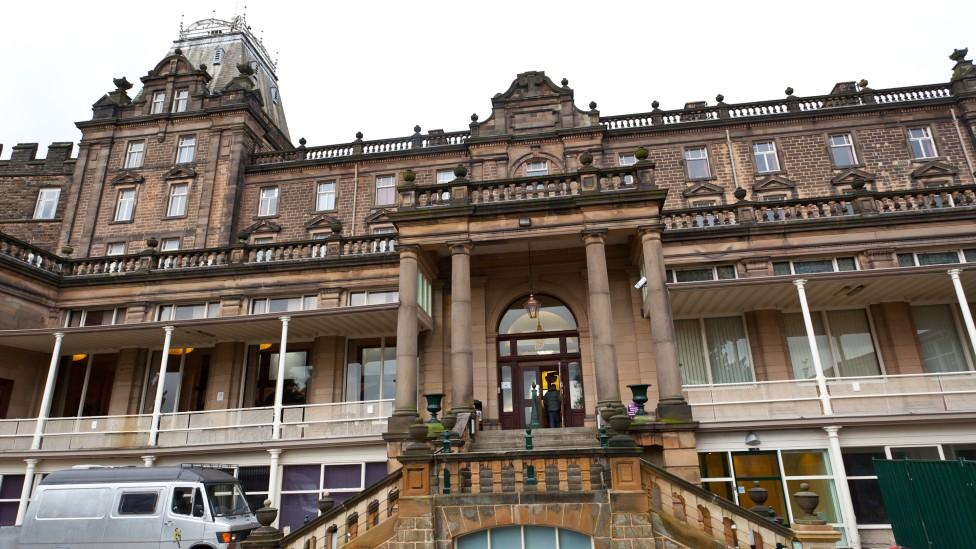
- Published23 November 2023
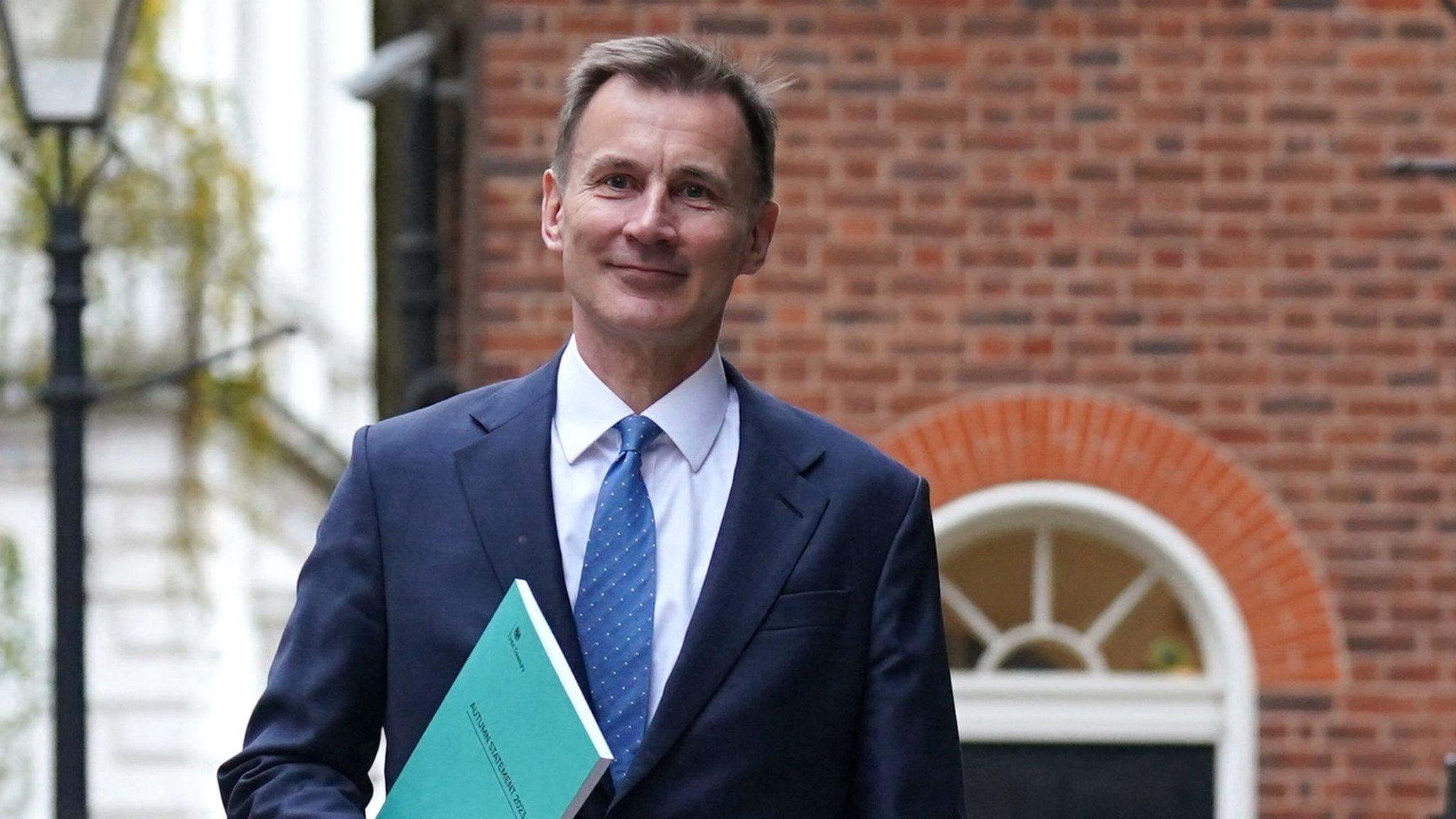
- Published14 September 2023
